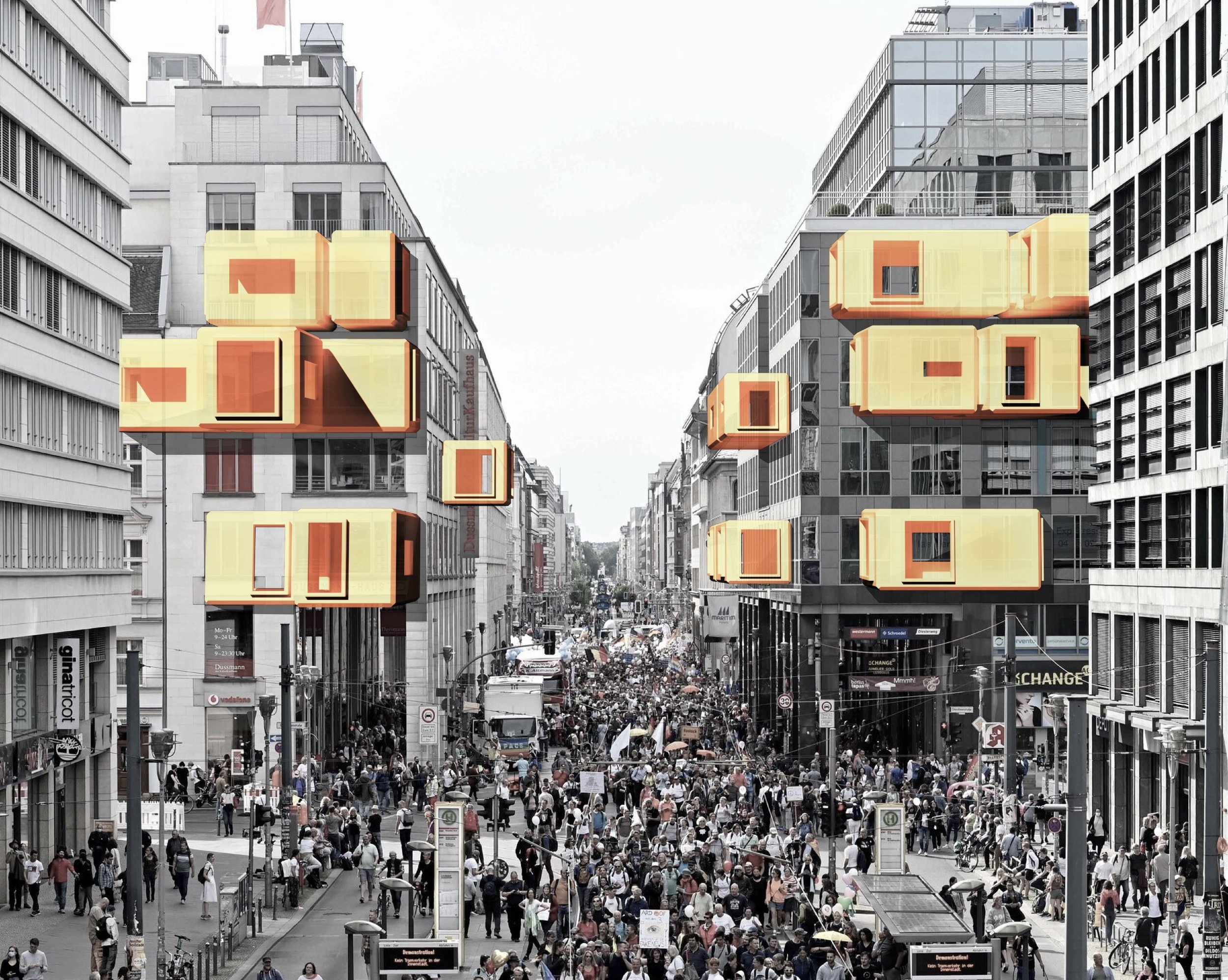
The Capsule
[Reimagining Berlin Social Housing in Modular Thinking]
Instructor: Elizabeth Clifton
2021 Berlin
Residential housing has always been one of the architectural typologies people rely on the most in architecture. Berlin, Germany, as one of the origins of modernism and Bauhaus enlightenment, has had a profound influence on the design philosophy of modern apartment housing throughout the 20th to 21st centuries. However, most apartments in Berlin are the result of extensive replication after the war, and these may not necessarily represent the living needs of modern people. Therefore, the focus of this project is to reshape the form of houses by rethinking people’s residential needs.
Similarly, in the 20th century, Japan, amidst crowded cities, gave rise to the design philosophy of metabolism. The concept of capsule housing, which can continuously “reproduce” in form, aligns well with the strong desire for autonomous spatial control among modern individuals. People can combine these capsule-shaped units based on different needs to achieve the unity of residential space. This capsule form can easily develop in various corners of the city, undergoing metabolism and renewal.











